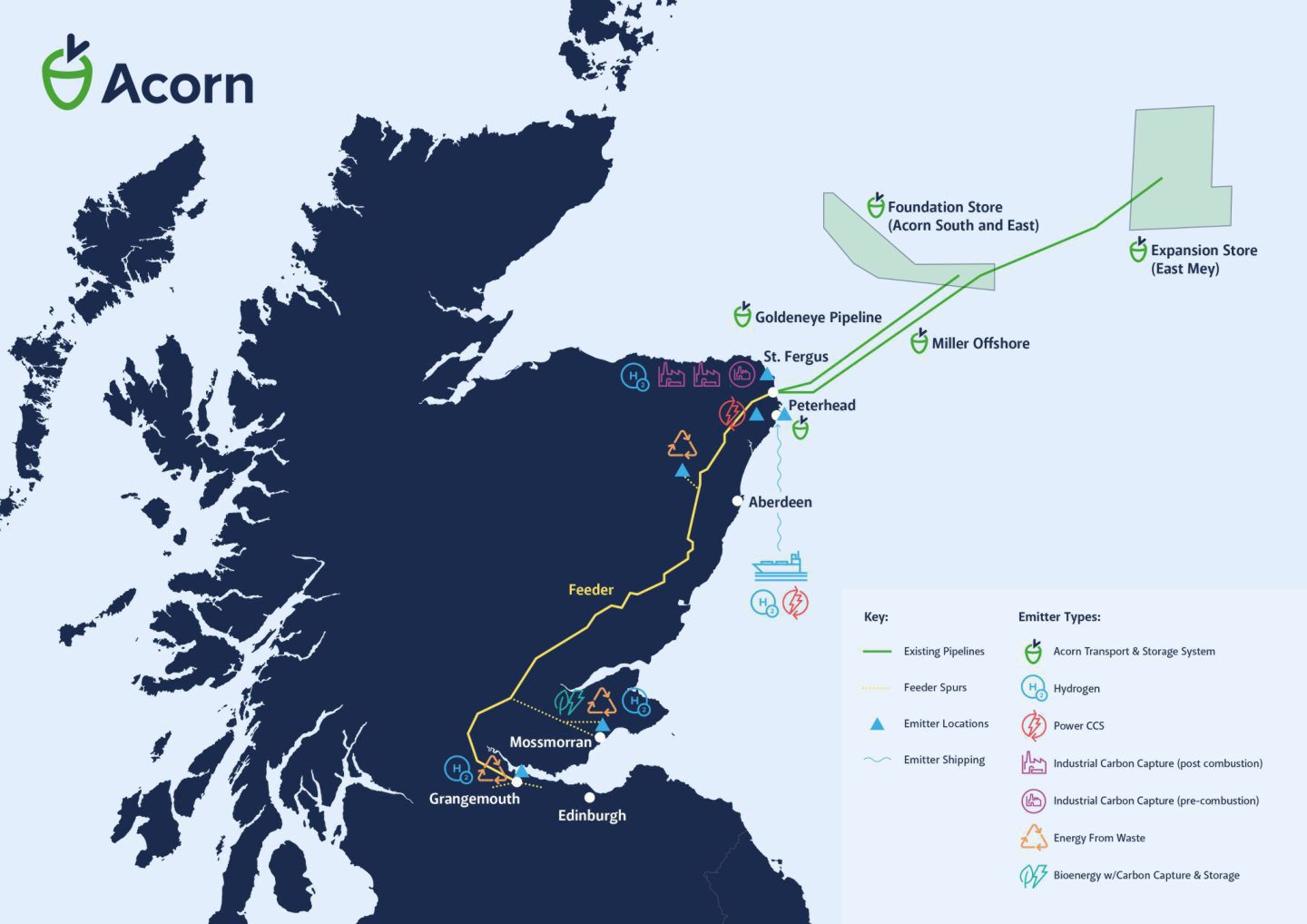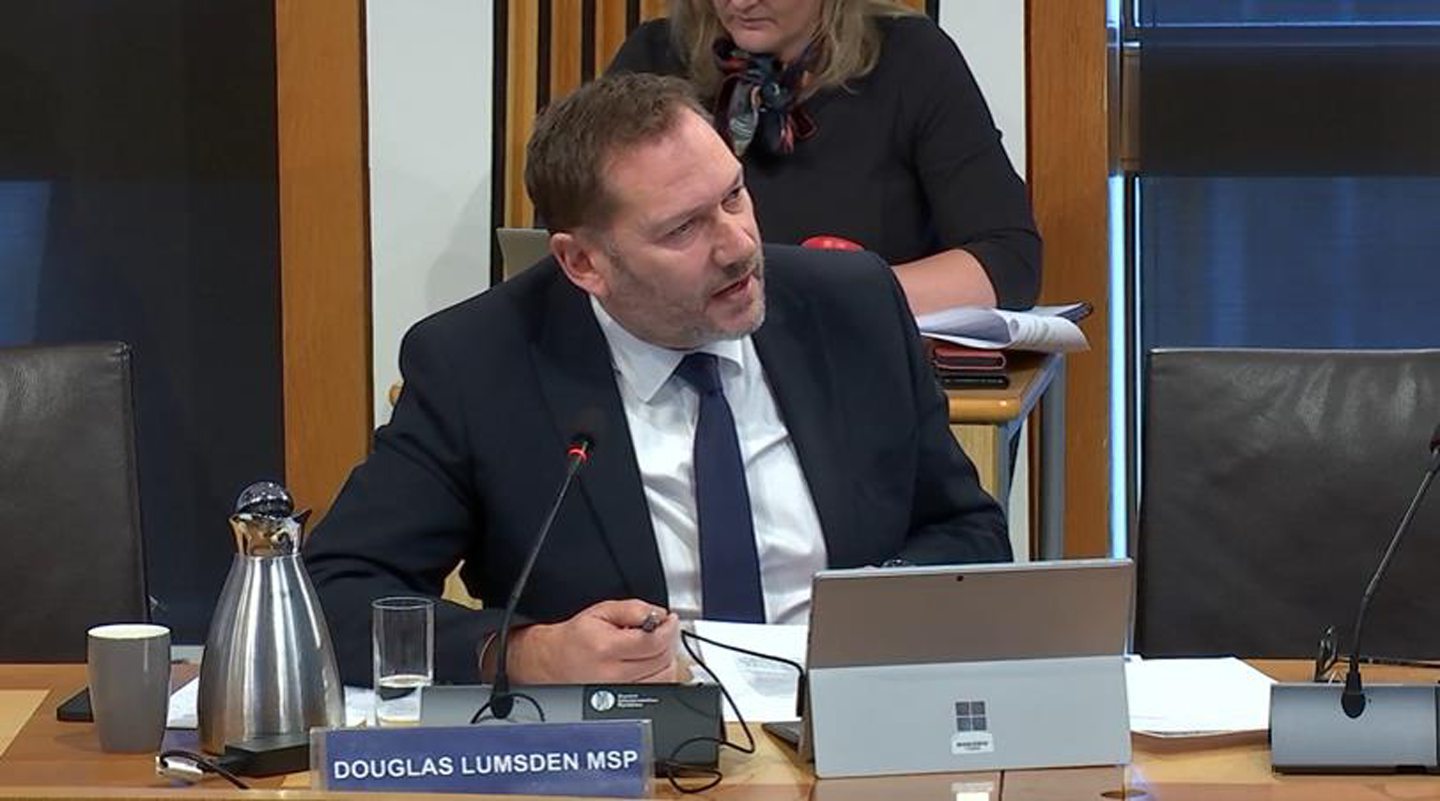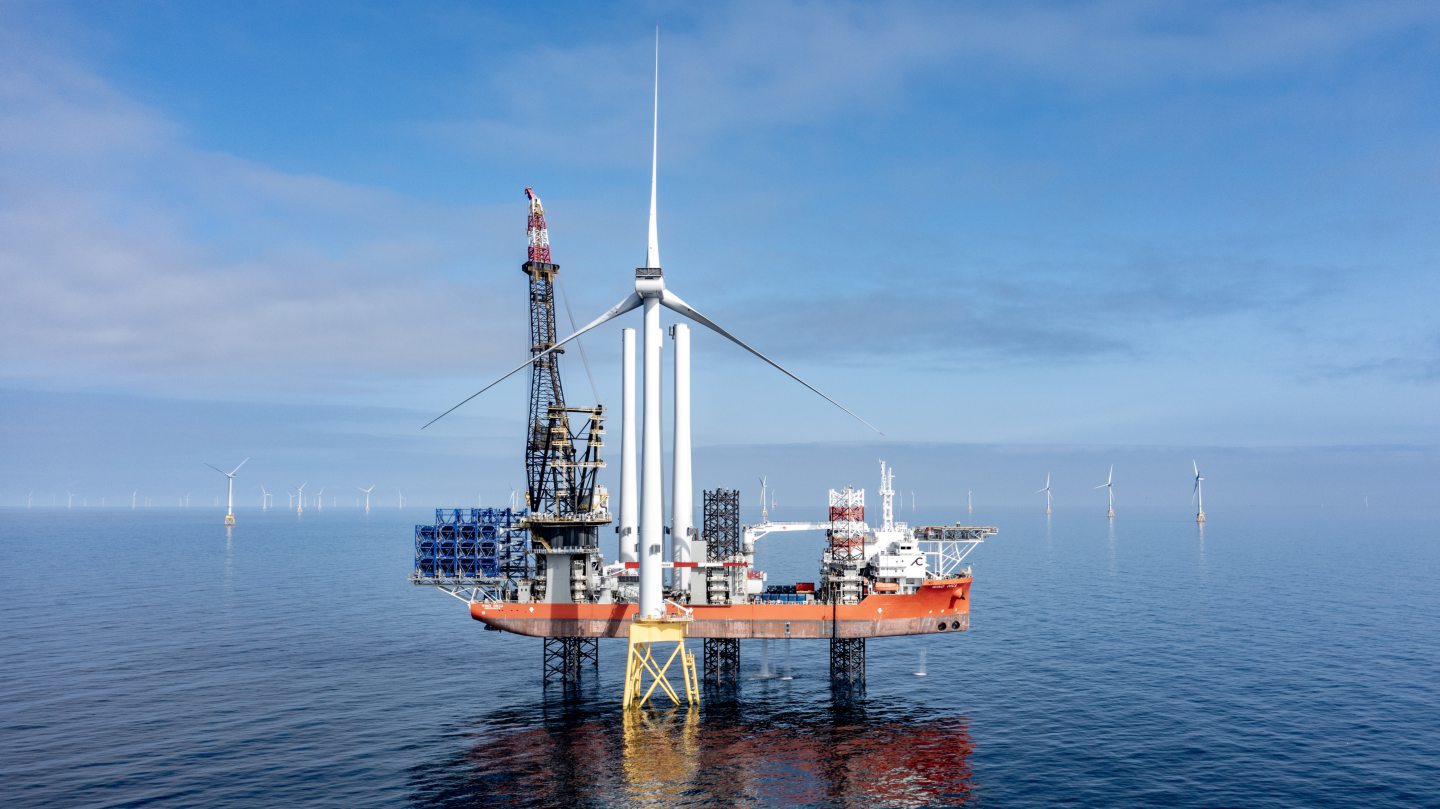
The developers of the Acorn carbon capture project are “still waiting” for UK government funding, Scotland’s energy minister says.
It comes three years after Scotland’s SNP administration pledged £80 million in support for the Acorn developers and the Scottish Cluster centred on Grangemouth.
The Acorn project involves capturing and transporting up to 20 million tonnes per year of carbon dioxide from industrial sites for storage under the North Sea.
A joint venture involving North Sea operators Shell, Harbour Energy and North Sea Midstream Partners is progressing the project alongside Storegga and the Scottish Cluster.
Acorn waiting for funding certainty
Acting cabinet secretary Gillian Martin said the Scottish government cannot distribute the £80m until the UK government confirms funding for Acorn under the so-called “track-2 process”.
Former Conservative prime minister Boris Johnson’s government initiated the funding competition for carbon capture and storage (CCS) projects in 2020, allocating £1bn.
In October 2021, the UK government selected the HyNet and East Coast Cluster for track-1 status.
However, it wasn’t until October last year that the current Labour government confirmed nearly £22bn in funding for the track-1 projects.
Meanwhile, the Viking CCS and Acorn projects were given track-2 status in 2023, but in November last year the CCS industry called for “certainty” on funding.
Appearing before the Holyrood Net Zero, Energy and Transport committee today, Scottish Conservative MSP Douglas Lumsden asked Martin why the £80m pledged in 2022 has not been spent.
Martin said the Acorn and Scottish Cluster developers told the Scottish government they do not need the money until they receive confirmation of track-funding from Whitehall.
“Now how many years are we waiting for this track status? If there’s any silver bullet for carbon and capture and storage in Scotland, it’s track status,” Martin said.
“I’ve made this point to the Conservative government… I’ve made this point to the current Labour government, we have got a massive opportunity [for CCS in Scotland].
“Now that £80m will be there and will be ready, and we will be directed by the Scottish Cluster and the Acorn project about how that is best spent in order to get that project off the ground.”
Acorn and Scottish Cluster
Lumsden asked why the Scottish government announced the funding before the UK government had confirmed track status for Acorn.
Martin responded that at the time, both the Scottish government and the Acorn and Scottish Cluster developers believed track-status was “imminent”.
“I think indeed the sector as a whole, and I think some of your [Scottish Conservative] colleagues were also expecting Track-status to be imminent given some of their comments in the press [at the time],” Martin said.
“We announced the £80m because we were wanting to be ready to assist the Scottish Cluster when track status was given. Unfortunately, we’re still waiting.
“The [Scottish] Cluster are ready, they want that £80m to be deployed at the point at which they need it.”
Following the hearing, Lumsden said the SNP government has “run out of excuses” for not spending the £80m fund.
“It’s now three years to the day since the Scottish government announced its £80 million Scottish Cluster support fund and disgracefully, not a penny has been paid out from it yet,” Lumsden said.
“Gillian Martin and the SNP have run out of excuses for not releasing the funding they promised for Acorn and didn’t even have the decency to mention the project in its 2025-26 Scottish Budget.
“Track-2 status was confirmed 18 months ago which is why it’s inexplicable that we are still waiting on the promised funding to be paid out.”
Scottish offshore wind supply chain
Martin also highlighted a tripling in capital funding to £150m for offshore wind supply chain projects in Scotland.
The energy secretary pointed to Sumitomo’s investment in a cable factory in the Highlands as an example of the private investment the Scottish government is enabling in the renewable energy sector.
“If we get this right, we could be looking at more people having jobs associated with renewables than indeed we ever had with oil and gas,” Martin said.
Martin said the Scottish government is continuing to look at ways to increase wind industry manufacturing, amid potential investments in turbine facilities from Vestas and Mingyang.
Investment in port infrastructure is also “critical” to ensure Scotland can benefit from future export opportunities, Martin added.
In addition, she said the SNP government is considering ways it can invest in innovative early-stage energy sector companies to support them to reach commercialisation.
“Where they’ve got potential for massive growth it would make perfect sense, where there has been government support, that there is an opportunity for the public to have a stake in those developments and companies as well,” Martin said.
Consenting and grid connections
Amid industry concerns about consenting delays, Martin said the Scottish government has more than doubled the capacity of its consenting unit.
The investment in extra staff is “already making a big difference”, with a target to deliver consenting decisions within 52 weeks.
But Martin said delays to receiving a grid connection remain a “major barrier to investment” for developers.
As the SNP continues to develop its long-delayed energy strategy, Lumsden also asked Martin if it is “difficult to set an energy budget without an energy strategy”.
In response, Martin said the Scottish government’s position on offshore wind, hydrogen and its green industrial strategy is “already widely known”.
SNP ‘finessing’ energy strategy
Martin said the SNP is “finessing” its strategy in line with recent developments, including Labour’s general election win and the Supreme Court’s decision in the Finch case.
“It’s important our energy strategy takes into account the work that the UK government is doing in the reserved space so that we are dovetailing our energy strategy with that,” she said.
“But no, it is not difficult to put money into prioritising the areas of energy that we know need government support, and I think this budget does that very well.”
Lumsden also asked if the SNP’s position on a “presumption against” oil and gas would rule out any spending to “help” the oil and gas supply chain.
In her response, Martin pointed to the Scottish government’s Just Transition Fund and said it provides support across the industry.
“We don’t just have a supply chain for oil and gas and we don’t have a supply chain for renewables, we’ve got an energy supply chain,” Martin said.
“Any funding that we put out there in terms of just transition [funding] helps… the oil and gas supply chain and oil and gas workers because they are all energy workers.”

 © Supplied by Storegga
© Supplied by Storegga © Supplied by Scottish Parliament
© Supplied by Scottish Parliament © Supplied by SSE Renewables
© Supplied by SSE Renewables